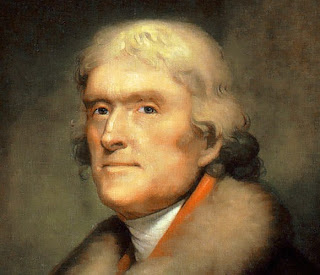John Adams wrote: “Moral … and political virtue, cannot be too much beloved, practiced, or rewarded; but to place liberty on that foundation only would not be safe … that form of government which unites all the virtue, honor, and fear of the citizens, in a reverence and obedience to the [Constitution and] laws, is the only one in which liberty can be secure, and all orders, and ranks, and parties, compelled to prefer the public good before their own; that is the government for which we plead.”
[1] Abraham Lincoln addressed this subject in his Address titled, “The Perpetuation of Our Political Institutions.” Regarding this speech, one historian has written, “If ever Abraham Lincoln addressed the requirements for a successful republic ... he did so in a speech delivered on January 27, 1838, to the Young Men’s Lyceum of Springfield, Illinois.”
[2] Lincoln directs our hearts to the import and obligation of devotion to the cause of liberty, and appeals to every American to “pledge his life, his property, and his sacred honor” in support of the Constitution:
“I know the American People are much attached to their Government; —I know they would suffer much for its sake;—I know they would endure evils long and patiently, before they would ever think of exchanging it for another. Yet, notwithstanding all this, if the laws be continually despised and disregarded, if their rights to be secure in their persons and property, are held by no better tenure than the caprice of a mob, the alienation of their affections from the Government is the natural consequence; and to that, sooner or later, it must come. Here then, is one point at which danger may be expected.
The question recurs "how shall we fortify against it?" The answer is simple. Let every American, every lover of liberty, every well wisher to his posterity, swear by the blood of the Revolution, never to violate in the least particular, the laws of the country; and never to tolerate their violation by others. As the patriots of seventy-six did to the support of the Declaration of Independence, so to the support of the Constitution and Laws, let every American pledge his life, his property, and his sacred honor;—let every man remember that to violate the law, is to trample on the blood of his father, and to tear the character of his own, and his children’s liberty. Let reverence for the [Constitution and] laws, be breathed by every American mother, to the lisping babe, that prattles on her lap—let it be taught in schools, in seminaries, and in colleges;—let it be written in Primers, spelling books, and in Almanacs;—let it be preached from the pulpit, proclaimed in legislative halls, and enforced in courts of justice. And, in short,
let it become the political religion of the nation; and let the old and the young, the rich and the poor, the grave and the gay, of all sexes and tongues, and colors and conditions, sacrifice unceasingly upon its altars.”
[3]
As citizens of the American Republic, our loyalty to the Constitution should be placed above politics, parties, candidates, or elected leaders.
By: J. David Gowdy
______________________
[1] George W. Carey, ed., The Political Writings of John Adams (Regnery Publishing, Washington, 2000) p. 296.
[2] Lucas E. Morel, Lincoln’s Sacred Effort: Defining Religion’s Role in American Self-Government (Lexington Books, Oxford, 2000), p. 23.
[3] Id., pp. 25-26 (emphasis added).
























